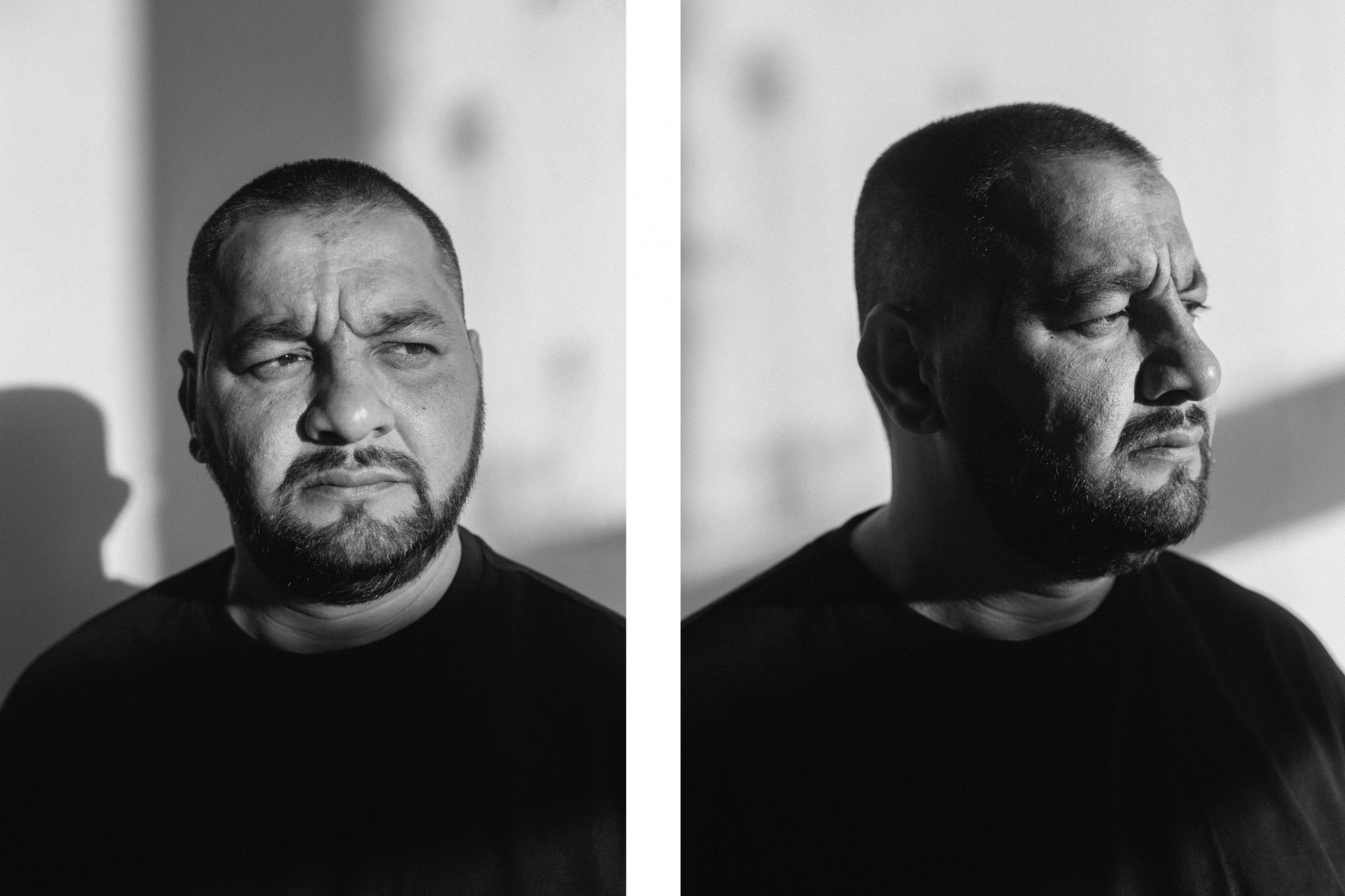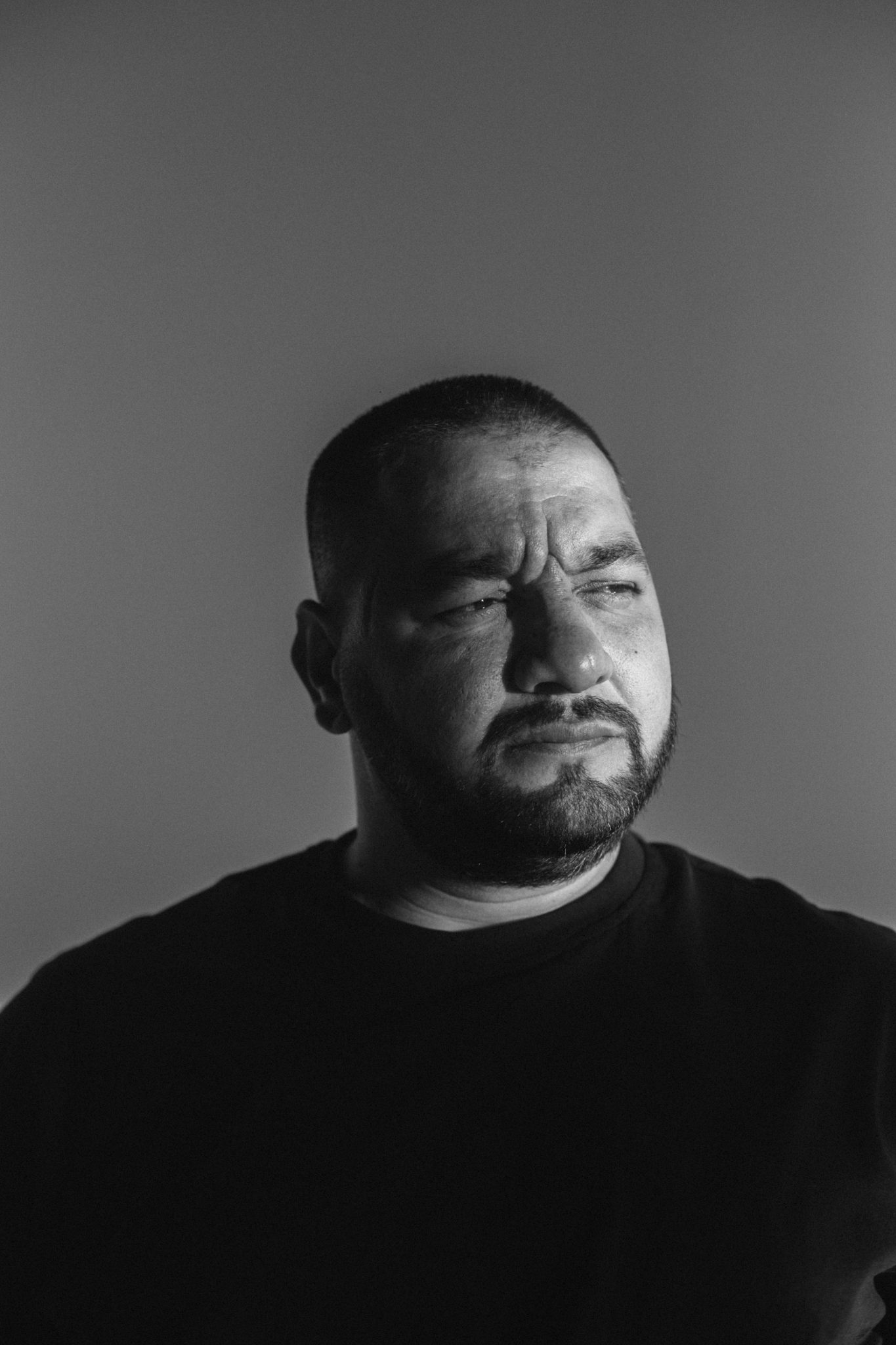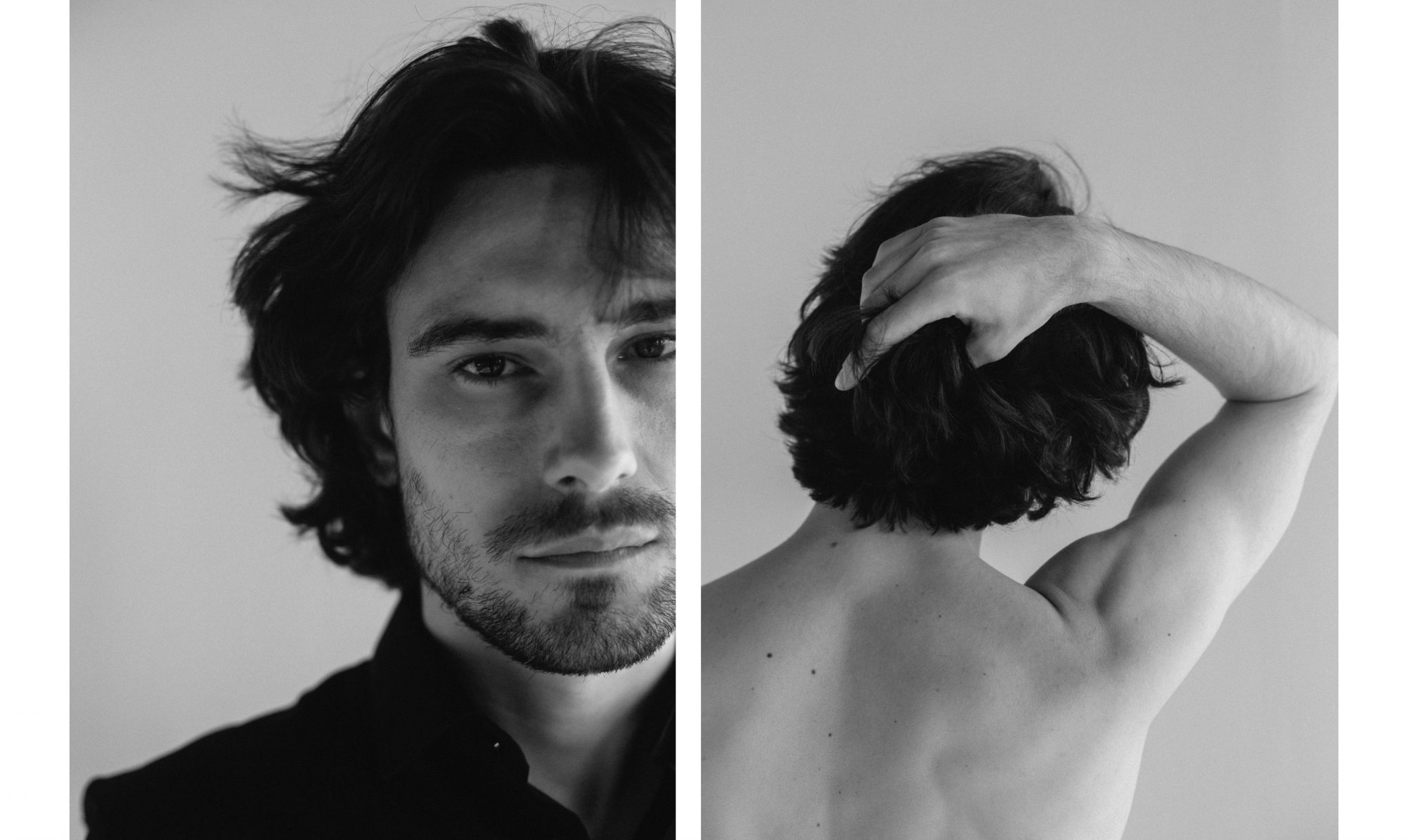Interview with the three protagonists of Immaculate
Immaculate is probably the best film I’ve seen so far in 2022 and the fact it is directed by a woman (and a debutant!) makes my heart jump with joy. The films follows 18 year old Daria, a heroin addict who’s signed in a rehab by her mother, months before her final exams. Here she enters a world composed 99% by men, where everyone sees her as a salvation. She becomes the center of attention, even though she’s an introvert and learns to totally get out of her comfort zone while becoming certain she wants to quite her bad habits. The film is co-directed by Monica Stan and George Chiper Lillemark and has been written by Monica. Inspired by her own teenage experience, the film has gathered two very important awards at Venice Film Festival in 2021: The Debut Award and the Giornate degli Autori for Best Director.
Because we already have interviews with Monica Stan and Ana Dumitrașcu at Films in Frame, I decided to talk with the boys – Cezar Grumăzescu, Rareș Andrici and Vasile Digudai, the three male characters revolving the most around Daria.
What were your first feelings and thoughts after reading the script?
Cezar: That I should take this casting (laughs). I loved it and that’s what hit me. It’s a must I play in it.
Digudai: Nothing to say, really. I auditioned, took the casting and felt happy.
Rareș: I hadn’t read the script before my audition, I guess I didn’t find the time because of rehearsals for a play we were preping. Viorica was angry with me [n. Capdefier, the casting director] but I understood quickly and clearly what they needed from me at the casting call and I tried to deliver. I read the script after I took the role. I liked it a lot.
Have you had similar experiences to the ones your characters have in the film?
Cezar: Not with heroin, no. My character is not an addict, by the way. I do know people who served as a good inspiration for various situations and scenes. It helped me understand the subject of the film better.
Digudai: I have no experiences whatsoever. Never tried anything else than 2-3 cannabis smokes to accompany my beer.
Rareș: Me neither, no experiences.

And how have you developed your characters? Each one is very accurate and strongly interpreted.
Cezar: Each of us had several meetings with Monica and George. I imagined the universe of Costea – how he lived, what he wanted, what he did, his profession and I wrote a 3 pages document that I showed to Monica. She didn’t see the character as myself at all, but was opened to try my version and see where it leads. It gave me a lot of confidence and courage, from that moment onwards I felt we worked freely.
Rareș: I also felt I was given the opportunity to work freely, without many „must-do’s”. We had meetings with Monica all together and sepparately. And even with rehabilitated people. It felt like a case study, a whole process of understanding.
Cezar: And the stories we have heard surpass any kind of imagination. Heroin in the 2000’s was like cannabis today. Everyone was using. Their stories helped us understand the bigger picture.
Digudai: I didn’t attend those meetings out of fear it might feed my curiosity.
Do you remember any story in particular?
Cezar: I do. There was this girl who’d been clean for a while and even wrote a book about it. She recounted how she used to scream when the weaning would start, from the 9th floor of her apartment building and be heard from the ground floor.
Rareș: I find the whole phenomenom shocking. It’s hard to conceive with an objective mind how could someone steal or spend all their money on something like that.

How was listening to and shooting with two directors? Were their opinions in tune? How about all of you on set?
Rareș: We rehearsed a lot the group scenes, so we could achieve that dynamic.
Cezar: I rehearsed a lot with Ana [n. Dumitrașcu] and Digudai, they were my partners on screen. And some very generous ones. Monica was always there, I could talk to her anytime, I never felt the pressure of not delivering. I liked the dynamic on set, we were like a family. And we didn’t have the proper conditions you usually have on a film set, like changing rooms and other stuff but we didn’t care. We were doing everything together and we enjoyed it that way.
Digudai: It’s such an opportunity to meet new people. Everyone on set was amazing and especially Monica and George. Monica is such a sweet girl, very understanding and thoughtful. Everyday of shooting was a blessing.
Cezar: With Monica we discussed everything about our characters and roles, but George was always there to guide us on set, while shooting. Where we should be in frame.
Rareș: And sometimes he would give us some very important insights about our character’s background.
Digudai: Oh yes, very good ones, indeed.
Can you tell me about a memorable moment from the shoot? It can be different for each one of you.
Digudai: I do have a memorable one I will probably remember my whole life. I filmed my final scene in the film, when I climb on the rehab building for half a day with a harness between my legs. It was unbearable, I couldn’t walk the rest of the day.
Rareș: For me it was the day when lunch came and someone received a whole chicken to eat.

Cezar: That was me (laughs). I had to get fat.
Rareș: And we were all on a diet for three weeks and they were giving us only light stuff, like vegetables. We were hungry even after eating, and Cezar was eating his chicken with so much appettie that I felt the blood rushing to my head.
Cezar: I remember eating only half and the rest I took home. I could feel the tense atmosphere around (laughs)
I have many memorable moments from the shooting, but what pops in my mind now is the flutters I felt when we were shooting the scene where Digudai’s character beats me. The first punch had to be real and I was so scared he’ll hit me so hard that I will go home afterwards.
Digudai: Come on, man, we had a stuntman with us.
Cezar: We did but one serious punch from you was enough to knock me out (laughs)
Cezar & Digudai, your characters are the most important ones in Daria’s life. What does she mean to you?
Cezar: I think in the beginning she is a mission for Costea and by the end it becomes his trophy. At some point he gets caught in her toils, like everyone else.
Digudai: At first I try to lure her so I can have her just for myself but when I realise it’s impossible, what remains is to protect her. Spartac becomes attached to her like you are to a family member, that’s why he decides he should give her his protection.

Cezar, where do you think everyone’s fascination for Daria comes from?
She’s like an exotic animal to all of them, she doesn’t belong in that place. Her status is desired by each one and if they could have her, probably their life would become better. I think that’s what fascinating about her. But Costea doesn’t share this fascination in the beginning. She grows on him along the way and he feels he’s the only one entitled to have a piece of her. That’s why she becomes his trophy.
You’ve all seen the movie but at different events. Do you remember your first screening and what made you feel or think?
Cezar: I was overexcited in Venice. The fact that I was there and the film was nominated was a huge thing for me. I felt a lot of pride at the end of the screening, like „man, I can’t believe I star in such a good film” (laughs)
I was impressed by Ana’s performance. It wasn’t an easy role for such a young and unexperienced actress, the whole films stays on her shoulders. She was so good that at the end, I went straight to her to congratulate her. I loved the film but I wanted to see it one more time. I was too nervous to pay attention to my performance.
What about you, Digudai? I know you went before at San Sebastian with Ivana’s film [n. Soldiers. A story from Ferentari, 2018] and you couldn’t stay put during the screening.
Digudai: I watched the whole film this time. I was extremely happy and nervous because it was my birthday. We went to eat and drink right afterwards, we had such a great time. Minus the eating part – the restaurant served only black rice and prosecco, I’m never having that in my life again. But Cezar was a good friend and went to the hotel to get the bottle of whiskey Mister Marcian [n. the producer] offered me.
During the screening there were moments when I felt I could have acted better, or said a better line, but you know, you can’t figure out all that when you shoot.
Rareș: I’ve seen the film at Les Films de Cannes and laughed a lot. I wasn’t laughing because it was funny, but because everything seemed so real to me, so authentic. That’s what surprised me the most. I don’t like seeing myself on screen but this time I liked even myself (laughs). To seem fake on screen is my biggest fear.
Cezar: No one dropped the mike on acting. And those aren’t easy characters to act, everyone did an amazing job. After the screening in Venice I wrote them all on our whatsapp group to let them know how good they were.

What you enjoyed the most watching the film?
Rareș: The scenes with Bogdan Farcaș, he’s just extraordinary.
Cezar: All the group scenes in which I don’t act (laughs). I’ve seen the film again recently, at One World Romania and it was as I expected. Comparing with Venice, where people couldn’t understand our Romanian humor, at OWR they laughed at every joke. I find these comical moments important because they make all the dramatic ones more appreciated and it hits you.
Digudai: The whole movie, really. There were many epic moments. Just seeing everyone on screen ravished me.
Digudai, you have a central role in Immaculate. Spartac [n. your character] is a very specific typology of a human being. A manipulator that subtly abuses Daria making her believe he’s protecting her, instead. And by the end this fake protection turns into a real one. What is Spartac to you?
I have two words to describe him: a sly man, and a thief. It’s true that by the end he becomes more human.

Are there any similarities between you too?
I’m sometimes a thief myself. But more like a sly dog, you know.
What do you take from acting?
Given that I come from a very different world, it’s such an amazing experience. Not even in 100 hundred years will there be anyone else from my slum living a similar life as I am. I have lived my whole life on the streets, in the hood, so acting is quite something. I get to see a different perspective, meet other types of people, people that speak politely and appreciate me. It makes me feel proud.
But do you like being on a film set, discovering a character? Or is it something you still do only for money?

Money are still the number one priority, but I enjoy meeting people that are nice to me. I live in the jungle where you see just hatred, poverty and animosity. This is different.
Rareș you play the most genuine and honest person in the film. Your feelings for Daria are sincere but they are not mutual. When do you think Manu falls in love with her?
From the first time he sees her. He notices she’s not feeling comfortable there, that she’s scared and he’s not part of that world either. He sees her vulnerability and feels attracted by it.

You talk about a vulnerability they both share.
Excatly. That’s the way I see Manu and how I worked with him. He’s an introvert and sees that in Daria, too.
And why do you think Manu doesn’t want to quit using heroin, even if he’s in rehab, trying?
I think he can’t see the good in life, an escape from all his problems. So he tries to see the world differently by using.

Immaculate will be screened in Romanian cinema starting with the 27th of May.
Title
Immaculate
Director/ Screenwriter
Monica Stan & George Chiper-Lilemark
Actors
Ana Dumitrașcu, Cezar Grumăzescu, Vasile Pavel Digudai, Rareș Andrici, Ilona Brezoianu, Bogdan Farcaș
Country
Romania
Year
2022
Distributor
Follow Art Distribution
Film producer and founder of ADFR, she dreamed since she was little of having a magazine one day. Alongside her job as editor-in-chief, she writes the interview of the month. She loves animals, jazz music and films festivals.


